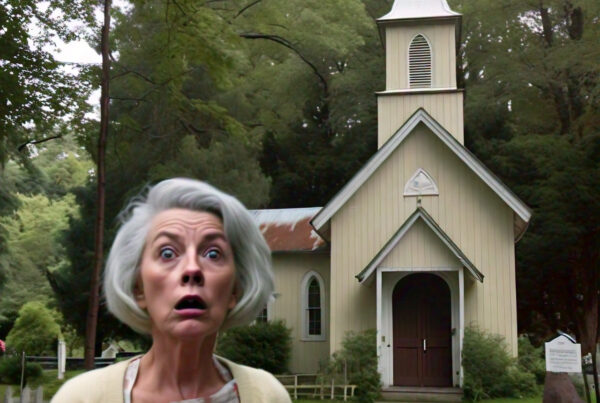
If you are a church leader the number one question right now is, “When and how do we resume in-person meetings?” While some churches never stopped meeting and several high-profile churches have already resumed, for most churches the pressure to get back to large gatherings is building. As we enter this new phase of the coronavirus I see three distinct categories among church leaders.
Survivors
The first is the leader just struggling to keep their head above water. Giving is plummeting, what reserves they had are drying up, and they don’t know if they’ll survive if they don’t reopen soon. These are often smaller churches who weren’t well positioned going into the crisis, and sadly the crisis may take them under. My heart goes out to these pastors, and my hope is they will reach out and find help from healthier churches in their communities.
Revivers
The second category is the leader moving as fast as possible to get back to where they were before the crisis. These are the churches that are opening as soon as possible. Their model of church was effective before the crisis, and they can’t wait to pick up where they left off. I saw this on Twitter from the pastor of one such megachurch church:
“Gentle reminder for all the “church will never be the same” and “online is going to be the new normal!” hot takes: We literally have 2,000 years of data (through many pandemics) that church will overwhelmingly happen via in-person gatherings. People are HUNGRY to gather again.”
The church this pastor leads has a lot invested in getting back to large, in-person gatherings; multiple large auditoriums, hundreds of specialize staff, and thousands of members anxious to return to what they’ve always known. The pressure to return is tremendous
Improvisor
The third category is the leader who sees this as an incredible opportunity to rethink and retool what church could look like for the next 50 years. They see the move to online in this season as an eye-opening in terms of evangelism and discipleship. They are asking, “How can we leverage what we are learning now to create a new, more effective model of church for the coming years?” I met this morning with leaders from one of the largest churches in America as they are trying to figure out, not just for themselves but in partnership with other churches in their region how they can do more than just reopen.
After any crisis the tendency is always to get back to normal, back to what we know, back to what was working. There is nothing wrong with that desire, but it seems like it would be unfortunate to waste an opportunity like we have before us to simply return to the status quo. The challenge is most of us have let the ability to truly innovate grow dormant. Over the last 10 years the questions I hear most often from church leaders are, “Who is already doing this well and how can we copy them?” Even during this crisis I have been asked this questions multiple times. The reality is no one is doing it well because no one knows what they are doing. If we want to innovate we can’t simply copy. We can learn and adapt, but to truly discover what is next we have to invent and test. We won’t know who is doing it well for several years, in the meantime we have to improvise.
Here are a few ideas to fuel your improvisation:
- Experiment with multiple models of church.
- Investigate the pros and cons of house churches seeking to understand why they have significant traction in other cultures but not in the U.S.
- As restrictions allow, launch different forms of microsites in a variety of venues. (i.e. coffee shops, day cares, club houses, empty restaurants)
- Constantly ask questions of people in and out of your church to discover what is effective and what might be effective in the future.
- Offer a variety of options of children’s ministry in a various venues; family services, small groups only, socially distanced large groups, etc.
- Study churches in other contexts and cultures to learn how they respond to limitations on in person meetings.
- Offer services multiple times during the week to discover new pools of potential disciples.
- Wait to return to in-person gathering as long as possible to learn as much as you can before cranking up the machine it takes to run large gatherings.
There isn’t a right or wrong to any of these categories. When your house is on fire you don’t have time to create a new form of fire extinguisher. When you are leading an organization that is effective and on mission you aren’t looking to start over. But for a few leaders who find themselves with the capacity to rethink the future this is truly the opportunity of a lifetime.


